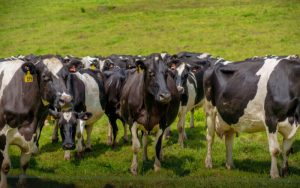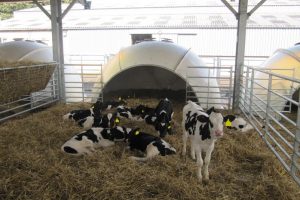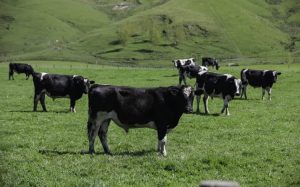
Ministry for Primary Industries (MPI) staff have ramped up testing procedures and investigations in an effort to determine how a dairy herd in the Selwyn district of Canterbury contracted Mycoplasma bovis.
The infection was picked up by routine bulk tank milk screening and now the race is on to find out how the cows were infected.
News of the outbreak comes just over four months after an announcement that there were no more cases of the disease in NZ and that the full eradication programme was working.
But at that time MPI warned that it was possible that other cases of the disease may surface in dairy herds in spring and that’s exactly what’s happened. The director of the Mycoplasma bovis eradication programme, Simon Andrew, says MPI clearly signalled this in April and says they expected to find new cases. He says the testing programme is being carried out nationwide to catch any potential cases of M. bovis.
He says the case was picked up by MPI’s ongoing testing. He says now that a case has been detected, a more rigorous and focused testing and investigation programme is underway to quickly determine if there are any more cases of M. bovis in the vicinity of the infected farm, or on other farms whose animals have been in contact with stock on the infected farm.
“This might establish a connection to a previously confirmed property and this will become clearer as our investigations continue. We will assess any risk events connected to the infected property and establish whether there are other cases of the infection that need to be investigated,” Andrew told Dairy News.
Andrew says historically M. bovis is a ‘dairy’ issue because there is greater movement of animals on and off farm, and the fact that the disease is passed from animals to animal through some form of contact.
He says as with previous outbreaks it is likely that several other farms will come under movement restrictions as the search goes on for other herds that might be infected.
“Our teams will be in touch with any farms affected… experience tells us that in nearly all these cases the restrictions are lifted quickly,” he says.
Meantime the stock on the infected farm will have to be culled as part of the eradication programme. Andrew says MPI is working with and supporting the farmer concerned. He says such news comes as a shock to people and MPI does everything possible to support the farmer and family through this difficult time.
MPI adds that farmers should maintain good biosecurity practices and keep accurate records of all movements of stock. It says keeping up-to-date NAIT records speeds up animal tracing.
M. bovis was discovered in 2017 and at the time Agriculture Minister Damien O’Connor made a call to eradicate the disease. Since then, over 183,000 cattle have been culled from 278 farms. But when in April the news came through that there were no more cases, O’Connor noted that the eradication programme was a ten-year deal and conceded that it would be a few years before elimination could be confirmed. He said it would take five more years to really confirm the absence of M. bovis in our herds,

























